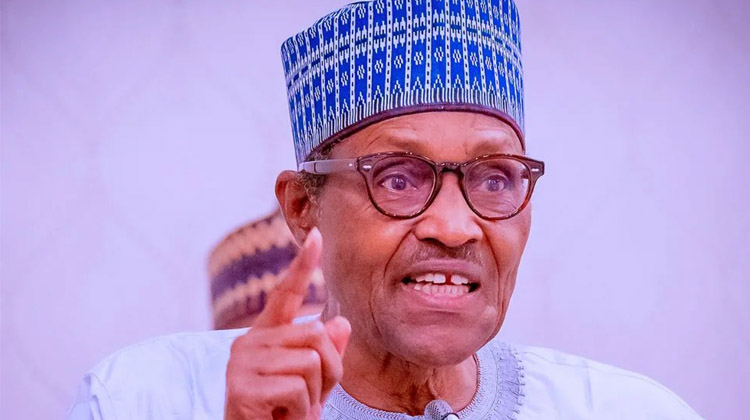The demise of former Nigerian President Muhammadu Buhari has sparked a wave of conjecture surrounding the political trajectory of his loyalists, especially those originating from the now-dissolved Congress for Progressive Change (CPC), the party he founded. Since the ascension of President Bola Tinubu, the CPC faction has witnessed a decline in influence, with prominent figures like ex-Kaduna Governor Nasir El-Rufai and former Secretary to the Government of the Federation Babachir Lawal openly contesting Tinubu’s potential second-term ambition. This internal dissent, amplified by Buhari’s death, presents a complex challenge for the ruling All Progressives Congress (APC) as it navigates the potential realignment of political forces and the management of Buhari’s considerable legacy.
Buhari’s passing has created a palpable sense of uncertainty within the Nigerian political landscape. Analysts predict that the APC may encounter renewed challenges from the late leader’s devoted following, estimated to exceed 12 million. The emergence of the African Democratic Congress (ADC) as a potential destination for disaffected Buhari loyalists further complicates the picture. This development aligns with observations made by former military Head of State, General Abdulsalami Abubakar, who posited that Buhari’s death would inevitably reshape the nation’s political dynamics, hopefully for the better. The competition between the APC and ADC to attract this substantial voting bloc is likely to intensify in the coming months, adding another layer of complexity to an already intricate political scene.
The ADC, through its interim National Publicity Secretary, Bolaji Abdullahi, has actively courted Buhari’s supporters, claiming that many have already joined their coalition. Abdullahi asserts that Buhari himself, during his lifetime, desired his followers to join forces with the ADC. He points to the presence of prominent CPC figures like Babachir Lawal, Nasir El-Rufai, and others within the coalition’s senior ranks as evidence of this alignment. The ADC narrative frames the APC as having alienated and vilified Buhari, accusing the Tinubu administration of scapegoating the late president for the country’s economic woes. This rhetoric aims to resonate with Buhari loyalists who feel their leader’s legacy is being tarnished by the current administration.
Despite the ADC’s claims and the surrounding political maneuvering, a significant number of former CPC members remain within the APC. This group includes a mix of current and former governors, senators, and other high-ranking officials. While many of these individuals are actively working for the APC in anticipation of the 2027 elections, the party acknowledges the potential for further defections, particularly among those feeling marginalized since Buhari’s departure from power. The APC faces the difficult task of balancing internal reconciliation with the need to maintain party unity and discipline amidst these potentially disruptive internal currents.
Salihu Lukman, a former APC National Vice Chairman and member of the ADC coalition, emphasizes the need for a new political paradigm in the wake of Buhari’s passing. He notes that Buhari’s endorsement carried immense weight, virtually guaranteeing electoral success in many parts of the north. With that influence now absent, Lukman argues that politicians must adopt a more humble approach, prioritize fulfilling promises, and rebuild trust with the citizenry. He believes this shift is necessary to meet the expectations of Nigerians and move beyond the era of relying on singular, powerful endorsements. His perspective underscores the transformative potential of Buhari’s death on Nigerian politics, urging a move toward greater accountability and citizen engagement.
The APC, through its Director of Publicity, Bala Ibrahim, maintains that Buhari’s loyalists remain ideologically aligned with the ruling party. While acknowledging the vacuum created by Buhari’s death, Ibrahim views it as an opportunity for introspection and reconciliation within the party. He emphasizes the APC’s ongoing efforts to reassess its position and mend internal divisions. Meanwhile, former Minister of Communications, Adebayo Shittu, a CPC veteran still within the APC, dismisses rumors of his own departure, even declaring his intention to run for governor of Oyo State on the party’s platform in 2027. He believes Buhari’s exit, while potentially leading to some defections, will not fracture the APC and that the party continues to attract new members. This reflects an optimistic view of the APC’s resilience and ability to navigate the post-Buhari era.


